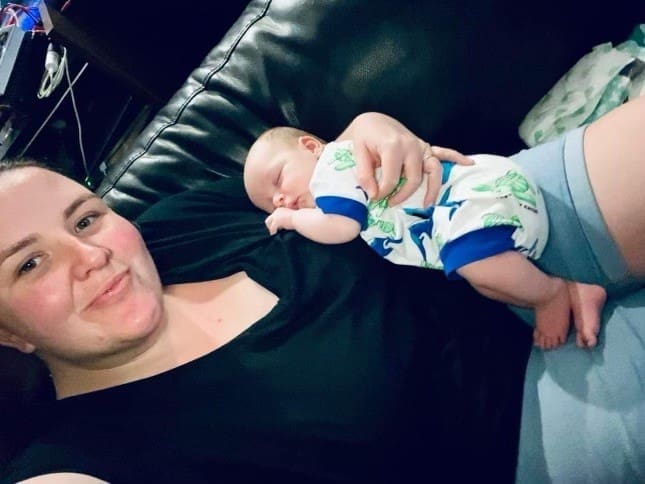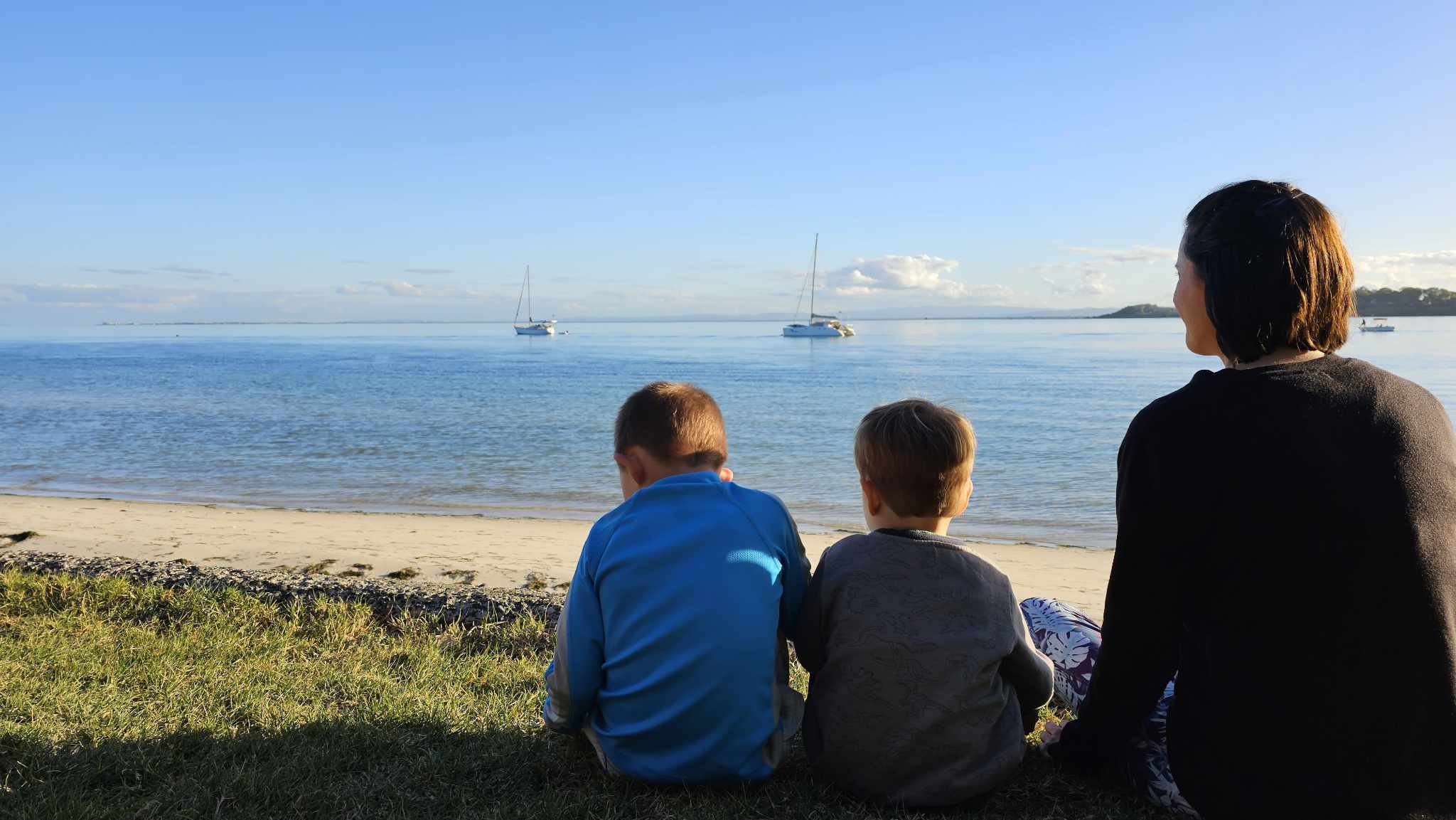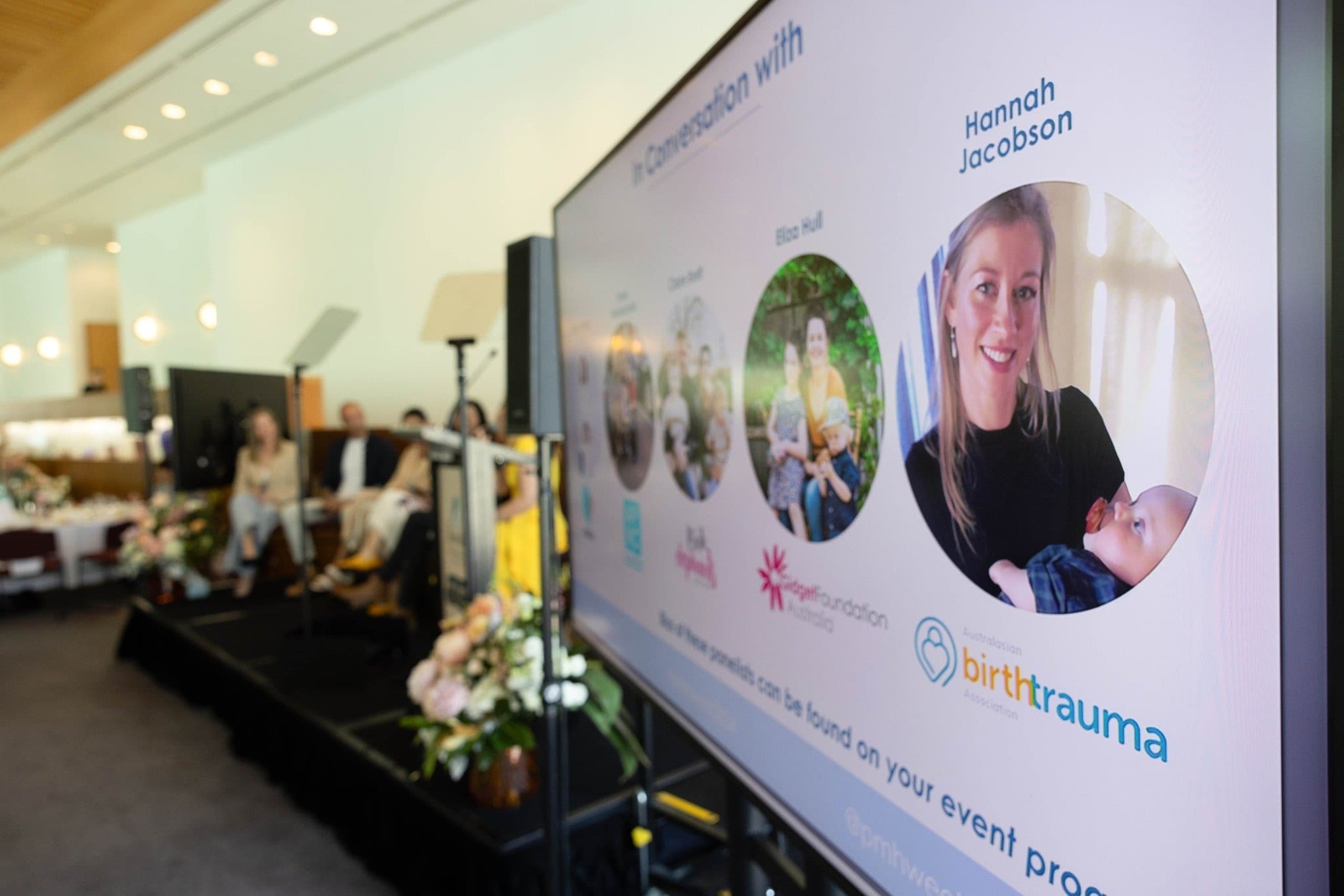On the 10th of January (10 days before our estimated due date), our little guy decided to surprise us with an early arrival. Our little darling Grayson was born at a perfect 7lb 5oz (tiny compared to what we were expecting) and 49cm long.
To say my birth didn’t go to plan is an understatement – we had the plan for as natural a birth as possible using hypnobirthing techniques, TENS machine and water to manage the pain, no epidural and no Synto drip. We had plans for hubby to catch our little boy and cut his cord after delayed calming, followed by the golden hour to establish breastfeeding and our bond, which were all so important to me (or so I thought). Instead, I got a 38hr posterior labour with contractions starting at three minutes apart, plus 13 attempts at an epidural which all failed (despite three doctors trying and trying to administer it with me laying down and sitting up). Epidural attempts were horrible; they kept hitting my bone (hubby later told me that he could hear the crunch every time they hit my spine) and burst two blood vessels in the epidural space. Hubby also had to pin me down throughout them trying to administer it while I was lying down even through contractions – doctors kept trying, despite all saying the needles weren’t long enough to reach the space they needed to go, until I begged and pleaded with them to stop attempting and let me be. Augmented labour with the Syntocinon drip after being stuck at 3cm, failed cannula attempts ending up with a cannula being inserted on the inside of my wrist (not ideal when in labour at all). Hubby was forced to leave in the middle of the night.
I was left to labour by myself on the ward as they didn’t have enough midwives to allow me to stay in the birthing suite – which meant my pain relief options were very limited (portable gas that turned out to be empty anyway, Panadeine Forte, and Temazepam due to me being hysterical from lack of sleep and being over the pain). When I was first moved to the birthing suite to access the gas, I was loving life again – it was still painful, but I was high as a kite on gas which made it bearable. I even played Go Fish with my mum whilst dealing with contractions (haha). Then morphine drip – I wasn’t aware they were going to use morphine as they originally intended to use another pain relief drug before deciding to use morphine instead – which ended up making my baby very sick for a while after birth. I was connected to so many monitoring machines and drips that I could no longer move around as freely as I wanted and couldn’t use the shower anymore to help with the pain. The final few hours of labour ended without any pain relief at all, and – due to me needing stitches and my baby needing to be rushed off to Special Care before I could even catch the slightest glimpse of him – it wasn’t until a few hours after he was born that I met my precious little boy.
It is now about 3.5 years since my son was born, and I endured a traumatic birth. PTSD still has its grips on my life today. I have faced having to attend various hospitals to visit family members, and despite being in different locations, I was still plagued by the effects of the sights, sounds and smells of being in a hospital. Any time I have been to the hospital, the following few nights are the worst – the nightmares and flashbacks return. In October last year, I also had to come face to face with one of my biggest fears, when I was required to have ACL reconstruction surgery [knee reconstruction surgery]. Despite being fortunate enough that I was able to have my surgery at one of our local private hospitals, there were many panic attacks and episodes whilst there. Thankfully, my team were absolutely outstanding and cared for me on a level I didn’t even know was possible; through panic attacks, they remained by my side and reassured me the entire time. I made it through the overnight stay, and I was so glad to be going home.
Living with PTSD is not a linear journey. I was surprised by how okay I can seem to be coping for a period of time, all for everything to come crashing down when I am faced with a trigger I hadn’t even thought would affect me.
I can now watch TV shows where births occur; however, If there is any mention of spinals/epidurals I still feel my back twinge and a shiver run up my spine. I cannot eat or be around anyone eating Malteasers (sadly, as they were one of my favourites) as the crunch of them is the closest thing to what the needles sounded like crunching against my spine. My hypnobirthing soundtracks are still in my playlist as I have been unable to bring myself to locate and remove them yet – they also bring about a harrowing reminder of my birthing experience, and I am hit with a wave of nausea and an overwhelming sense of claustrophobia and panic when they randomly come on shuffle. I have the best intentions of filling out my son’s baby book and pregnancy journals; however, I have to be aware of the fact that doing so will likely bring about flashbacks, so I need to be in a mentally strong headspace. Photo memories pop up on my phone from labour, and I am quick to close my phone and move to a distraction. One day when I feel strong enough, I will be able to make a folder for them. PTSD has affected how I cope and interact with family or friends who are pregnant, which makes way for guilt and feelings of selfishness. After the surgery, my PTSD hit a peak, and I faced a relapse of bipolar symptoms, so the decision was made with my psychiatrist that I would be placed back on mood-stabilising medication.
Whilst putting together some ideas here, I was also living in a week of triggers – my son was ill with fevers and extreme lethargy all week and ended up in the ER over the weekend. The ER of the same hospital he was born at. I struggled to trust the medical professionals treating him, given my past experiences there. I had to overcome my own anxieties surrounding triggers to be there for my son, who was clearly distressed. One of the hardest triggers was when my son needed a cannula inserted for them to take blood – cannulas are one of my biggest triggers due to my negative experiences with them. The entire time we were there (the entire day), I battled internally with the fight or flight response and wanted to be as far away from the hospital as possible. Our experience there was thankfully a positive one; the doctors and nurses were thorough and cared for him extremely well, which goes a long way in healing my trust in care providers.
If you’d like to chat to someone about your birth experience and start getting support today, please reach out to one of our friendly Peer2Peer Support Team.




